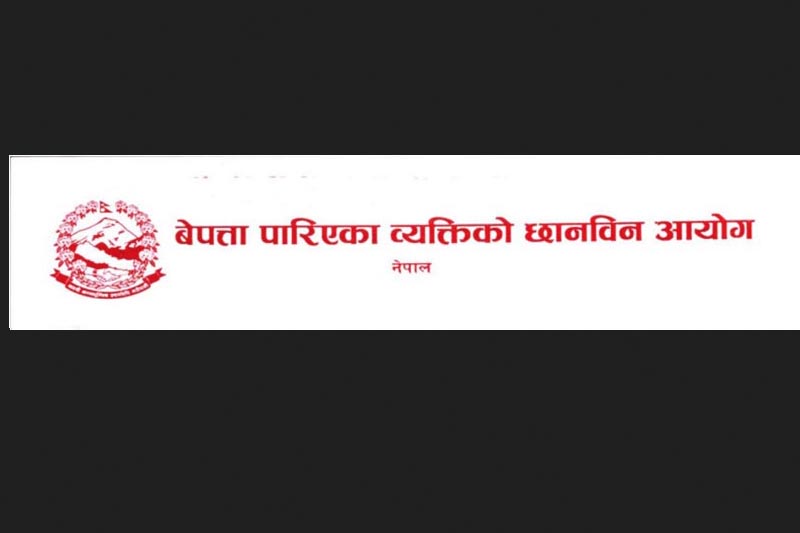CIEDP’s interim report within two weeks
Kathmandu, March 16
The Commission of Investigation on Enforced Disappeared Persons will be submitting an interim report to the government on progress made so far, within two weeks.
Through an amendment to the Transitional Justice Act, the government has extended the tenure of members of the two commissions — the other being the Truth and Reconciliation Commission — till April 13, and the tenure of the commissions by one year, with provision for one-year extension.
CIEDP Spokesperson Bishnu Pathak said the interim report would be divided into four sections—truth, justice, reparation and institutional reforms.
The ‘truth’ section will include complaints lodged with the commission, victims’ testimonies, and progress in investigation.
The ‘justice’ section will include procedures related to recording of statements from alleged perpetrators. The CIEDP formulated the procedures after recording the statements of victims.
This section will also include a report recommending action against perpetrators. This includes nature of action to be taken based on the type of rights violation.
The third section, ‘reparation’, will include procedure on the types of reparation such as social, cultural, personal and financial, among others. This section will also include matters such as distribution of identity cards to conflict victims.
Finally, the ‘institutional reforms’ section will include recommendations in terms of policy-level, ideological and procedural reforms to be implemented in the CIEDP to make it more effective.
Pathak said they would hand over the report to Prime Minister KP Sharma Oli if they could meet him. If not, they would forward copies of the report to Oli, Nepal Communist Party Co-chair Pushpa Kamal Dahal, and Nepali Congress President Sher Bahadur Deuba.
The CIEDP has completed first-phase of investigation — collecting evidence and testimonies from victims and filling reparation and ante-mortem data forms — into 85 per cent of the complaints.
The transitional justice mechanism formed to investigate conflict-era cases of enforced disappearances had received more than 3,000 complaints. Of them, it recommended just over 2,500 complaints for detailed investigation. It has so far completed first-phase of detailed investigation into 2,149 complaints coming in from 64 districts.
On the other hand, the Truth and Reconciliation Commission is unlikely to submit its report given its failure to hold a meeting following the resignation of its Chairman Surya Kiran Gurung and member Lila Udasi Khanal. TRC member Manchala Jha said the chairman and a senior member had resigned and the TRC had not been able to meet. The TRC has collected more than 60,000 complaints of rights violation.
The TRC and CIEDP were formed in 2015, but have failed to make substantial progress, thanks to lack of necessary legislation, human and financial resources crunch and internal weaknesses.
The two commissions have been saying they can function well only if there is Transitional Justice Act amendment in line with Supreme Court orders, adequate budget and human resources.





